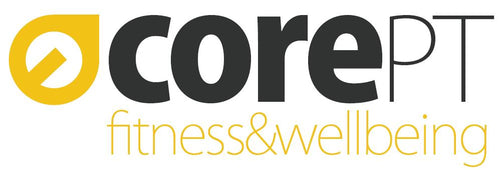As an athlete, setbacks in training are inevitable. Whether it's due to injury, illness, or simply a lack of progress, setbacks can be frustrating and demotivating. However, it's important to remember that setbacks are a natural part of the training process and that they can be overcome. In this blog post, we will explore how to deal with setbacks in training as an athlete, the things that might set you back in training, how to regain confidence after a setback, and when to train after an illness.
Things That Might Set You Back in Training
There are many things that can set you back in training, including injury, illness, lack of progress, overtraining, and mental burnout. Injuries are one of the most common setbacks for athletes, and they can range from minor sprains and strains to more serious injuries such as torn ligaments or fractures. Illnesses such as the flu or a cold can also set you back, as they can affect your energy levels and ability to train effectively. Lack of progress and overtraining can also be setbacks, as they can lead to burnout and demotivation.
Dealing with Setbacks in Training
When dealing with setbacks in training, it's important to stay positive and focused on your goals. Instead of dwelling on the setback, use it as an opportunity to learn and grow as an athlete. Take some time to reflect on what caused the setback and how you can prevent it from happening again in the future.
One of the best ways to deal with setbacks is to stay active in some way. While you may not be able to train at your usual intensity, you can still do some light exercises or activities that will help maintain your fitness levels and keep you motivated. If you are not able to be active at all, you can stay mentally active. You might spend your time reading about a topic of training or educating yourself on a certain topic. Staying mentally and physically active are equally as important.
Regaining Confidence After a Setback
When you experience a setback, it's common to feel a loss of confidence in your abilities as an athlete. To regain your confidence, it's important to set small, achievable goals that will help you build momentum and see progress. Celebrate your accomplishments, no matter how small they may seem, and use them as motivation to keep pushing forward.
Another way to regain confidence is to seek out support from coaches, trainers, or fellow athletes. They can offer guidance, support, and encouragement, and can help you regain your discipline.
When to Train After an Illness
If you've been sick, it's important to take the time to fully recover before returning to training. Going back to training too soon can put you at risk of further illness or injury, and can also set you back in your progress. It's best to wait until your symptoms have completely disappeared before resuming training.
When you do return to training after an illness, it's important to start slowly and gradually increase your intensity and duration. Your body may have lost some fitness during your time off, so it's important to ease back into your training to prevent further setbacks. Do not rush in to doing workouts at the pace, duration or intensity that you were doing pre illness.
How Much Fitness Will You Lose When Having to Take Time Off Training?
The amount of fitness you lose when taking time off training depends on a number of factors, including the length of time you were off, your fitness level prior to the break, and your age. Generally, you can expect to lose some fitness during a break from training, but the amount can vary widely.
The good news is that you can regain your fitness levels relatively quickly once you resume training. By starting slowly and gradually building up your intensity and duration, you can regain your fitness and continue making progress towards your goals. Its paramount you do not focus on the negatives and treat it in the same way you would when returning to training after any transitional or recovery break.
In conclusion, setbacks in training are a natural part of the training process, but they don't have to derail your progress as an athlete. By staying positive, staying active in some way, keeping your mind active, setting small achievable goals, seeking support from others and setting an appropriate return to training, some breaks can actually be a positive, you can return a more knowledgeable, more experienced and fully rested athlete.
